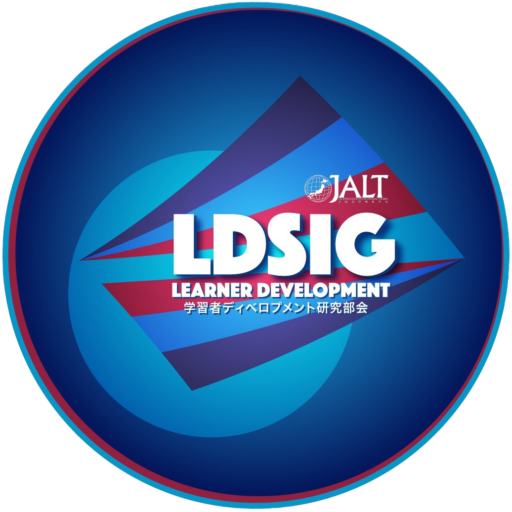Issue 5 of The Learner Development Journal (LDJ5) has just been published!
Engaging with the Multilingual Turn for Learner Development: Practices, Issues, Discourses, and Theorisations
LDJ5 Download either the full issue or individual contributions in PDF format.
Editors: Andy Barfield, Oana Cusen, Yuri Imamura, & Riitta Kelly
[For archival purposes, the original call for papers:]
Hello everyone
The four of us all share an enthusiasm about researching and understanding issues to do with learner development and multilingualism, and we would like to work with a wider group, co-learning with other teachers and students who are similarly enthusiastic and curious about engaging with the multilingual turn for learner development. If questions like the following intrigue you, then please consider putting in a proposal for Issue 5 of The Learner Development Journal (LDJ5):
- Why do we need multilingualism/in what ways is multilingualism useful and important for learner development? Why now?
- In what different ways might multilingual approaches to language education lead teacher-researchers to question, engage with, and attempt to move beyond current norms and dominant notions of learner development? Why?
- Under what conditions do learners use and might they use their multilingual resources for developing their own capacities and self-direction in becoming more autonomous learners? How? Why?
- What puzzles do you and your learners have about developing multilingual practices in the classroom and outside, and how might you explore those puzzles together?
- How could multilingual approach(es) and practices for learner development enhance “Quality of Life and Learning” for ourselves as teachers and for the learners we work with? Why?
- Outside of formal education, what can be learned from different practices of raising children multilingually in Japan (and in other societies)? How might such insights inform and transform our approaches to learner development within formal education?
For LDJ5 we wish to bring together a group of teacher-researchers interested in inclusive practitioner research, with a specific emphasis on starting from practices and/or ideologies to do with multilingualism and learner development, and then theorising “outwards” through inquiry towards critically situated understandings—whether these practices and ideologies are explored within formal/non-formal education, from primary through to tertiary, or in other contexts such as family, pre-school, adult learning, fieldwork, social media, study abroad, and the workplace. For more details, please be sure to read the full Call for Inclusive Practitioner Research and Reviews, available here: LDJ5 Full Call for Proposals
LDJ5 will feature two main types of exploratory writing: narrative accounts and practice-related reviews.
With narrative accounts at 5,000-7,000 words, we are looking for around 6-10 contributions, each with a strong narrative quality. We invite contributors to LDJ5 to:
- ground their writing in concerns and questions that they have about engaging with the
- multilingual turn for learner development
- write their inquiry as an unfolding story
- include different voices
- relate their inquiry to arguments and debates in the field where appropriate, and
- write questioningly to construct critical understanding and reflection on practices, issues, discourses, and theorisations to do with multilingualism and learner development.
For practice-related reviews, we would like to include reflective commentaries at around 2,000 – 3,000 words about the books listed further below (inspection copies have been generously provided by publishers and we would send you a copy of the respective book to review). As a reviewer, you would need to relate your review to exploring your own local learner development practices and concerns rather than trying to provide objective, ‘clinical’ summaries of a particular work:
Conteh, J., & Meier, G. (Eds.) (2014). The multilingual turn in languages education. Bristol, UK: Multilingual Matters.
Heinrich, P. (2012). The making of monolingual Japan. Bristol, UK: Multilingual Matters.
Horner, K., & Weber, J-J (2018). Introducing multilingualism: A social approach (2nd ed.). London, UK: Routledge.
Kalaja P., & Melo-Pfeifer, S. (Eds.) (2019). Visualising multilingual lives: More than words. Bristol, UK: Multilingual Matters.
Martin-Jones, M., & Martin, D. (Eds.) (2016). Researching multilingualism: Critical and ethnographic perspectives. London, UK: Routledge.
May, S. (2014) (Ed.). The multilingual turn: Implications for SLA, TESOL, and bilingual education (2nd ed.). London, UK: Routledge.
Piller, I. (2016). Linguistic diversity and social justice: An introduction to applied sociolinguistics. Oxford, UK: Oxford University Press.
*********
Before sending your proposal to us, please make sure you read the full Call for Inclusive Practitioner Research and Reviews, available here: LDJ5 Full Call for Proposals
*********
- If you wish to check anything with us ahead of sending in your proposal, please email us at: JALT LDJ5 jaltldj5@gmail.com, and we will get back to you as soon as we can.
- The deadline for all proposals is Monday 13th January 2020.
- For your proposal, please include the following information in a Word document.
- Name(s):
- Institutional affiliation(s):
- E-mail address(es):
- Member of JALT LD SIG? Yes/No
- Proposal guideline: Start with a brief story about yourself and your working (or studying) context(s), and your interest in engaging with the multilingual turn for learner development. Indicate which type of writing you plan to do.
- For a narrative account, write around 500 to 600 words to introduce your proposed inquiry. Include also your ideas and/or concerns about writing narratively.
- For a practice-related review, write about 250 to 300 words, identifying the book or work you are interested in reviewing and why, and focusing on practices and/or questions that you plan to relate your review to.
- Send your completed proposal to: JALT LDJ5 jaltldj5@gmail.com
*********
Many thanks – we are looking forward to hearing from you,
Andy Barfield, Oana Cusen, Yuri Imamura, & Riitta Kelly jaltldj5@gmail.com
